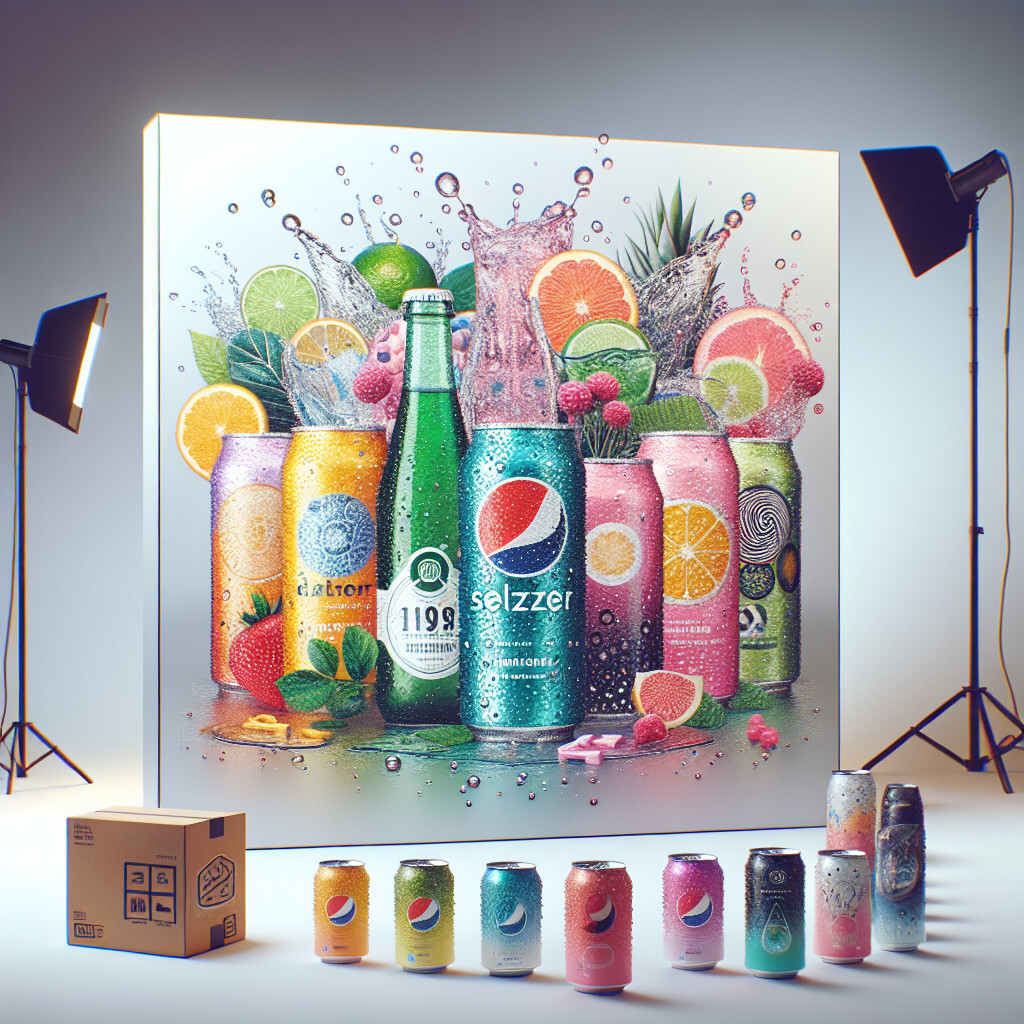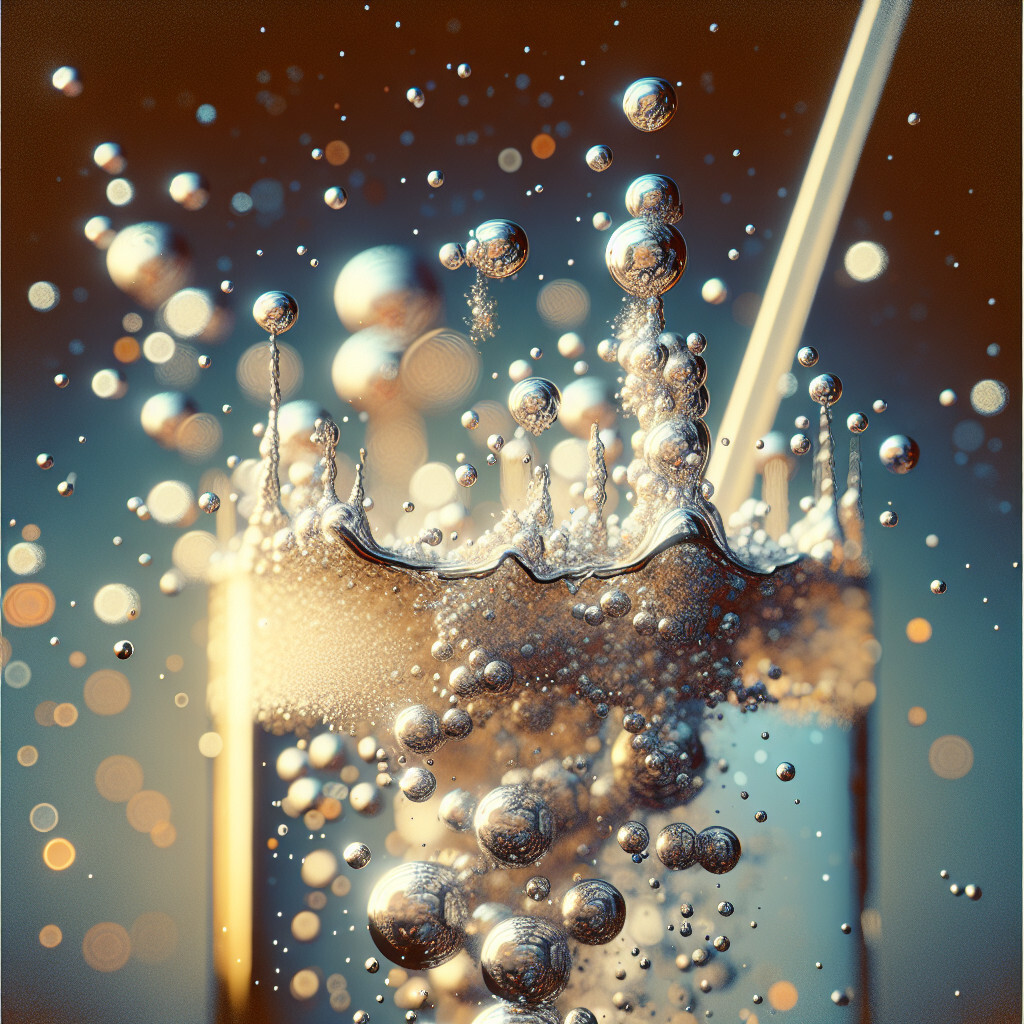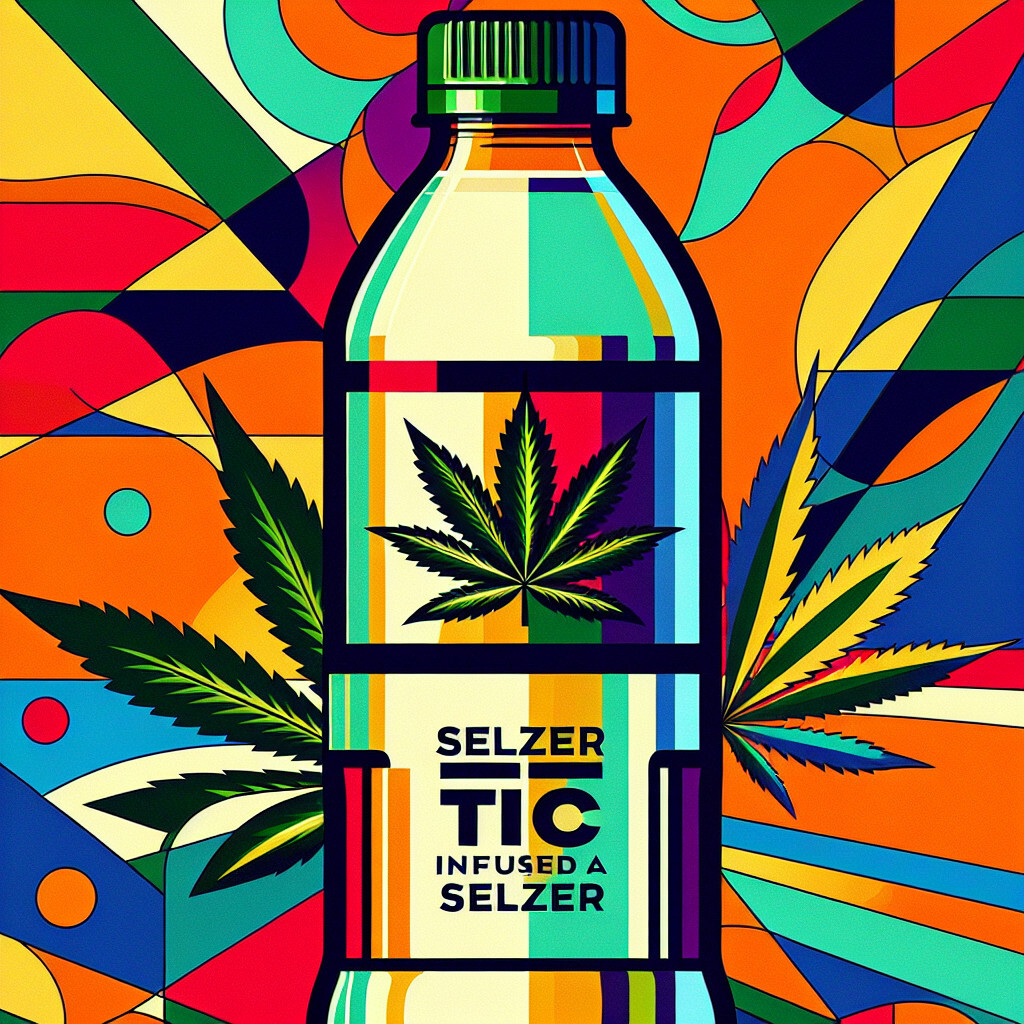-
Table of Contents
- Introduction
- Exploring the World of Kombucha: A Healthy Alternative to Seltzer Water
- Discovering Herbal Teas: A Refreshing Substitute for Seltzer Water
- Coconut Water: A Tropical Twist on Your Regular Seltzer
- The Rise of Infused Water: A Flavorful Option to Seltzer Water
- The Health Benefits of Green Tea: Why It’s a Great Alternative to Seltzer Water
- Q&A
- Conclusion
“Beyond Bubbles: Discover the Uncharted World of Seltzer Alternatives!”
Introduction
Alternative drinks to seltzer water are beverages that offer similar benefits such as hydration and refreshment, but with different flavors or nutritional profiles. These alternatives can include flavored water, herbal teas, coconut water, kombucha, and infused water. They are often chosen for their natural ingredients, low sugar content, and potential health benefits. Some people may prefer these alternatives due to dietary restrictions, taste preferences, or a desire for variety in their drink choices.
Exploring the World of Kombucha: A Healthy Alternative to Seltzer Water

In the ever-evolving world of health and wellness, the quest for alternative beverages that not only quench thirst but also offer a myriad of health benefits is a constant pursuit. One such beverage that has been making waves in recent years is kombucha, a fermented tea that has been touted as a healthier alternative to seltzer water.
Kombucha, a centuries-old drink, has its roots in East Asia. It is made by fermenting sweetened tea with a symbiotic culture of bacteria and yeast, commonly referred to as SCOBY. The result is a fizzy, slightly sour, and refreshing beverage that is not only delicious but also packed with a host of health benefits.
One of the primary reasons kombucha has been hailed as a healthier alternative to seltzer water is its probiotic content. Probiotics are beneficial bacteria that promote a healthy gut, which is crucial for overall health. The fermentation process of kombucha results in a rich source of these beneficial bacteria. In contrast, while seltzer water may be a low-calorie and sugar-free alternative to sugary sodas, it does not offer the same probiotic benefits.
Moreover, kombucha is rich in antioxidants, compounds that fight off harmful free radicals in the body. These antioxidants primarily come from the black or green tea used in the fermentation process. Regular consumption of antioxidants has been linked to a reduced risk of chronic diseases, including heart disease and certain types of cancer. Seltzer water, on the other hand, does not contain these beneficial compounds.
Another advantage of kombucha over seltzer water is its potential to aid in digestion. The probiotics found in kombucha can help balance the gut microbiota, promoting better digestion and reducing symptoms of conditions like irritable bowel syndrome. Seltzer water, while hydrating, does not have the same impact on digestive health.
Despite these health benefits, it’s important to note that not all kombucha is created equal. Some commercially available kombucha drinks are loaded with added sugars, which can negate some of the health benefits. When choosing a kombucha drink, it’s crucial to read the label and opt for brands with low sugar content.
Additionally, while kombucha is generally safe for most people, it does contain a small amount of alcohol as a byproduct of the fermentation process. Therefore, it may not be suitable for everyone, including pregnant women, children, and individuals with certain health conditions.
In conclusion, while seltzer water is a refreshing and calorie-free beverage, it lacks the health benefits offered by kombucha. With its probiotic content, antioxidant properties, and potential to aid in digestion, kombucha presents a compelling alternative to seltzer water. However, as with any health trend, it’s important to consume kombucha in moderation and choose low-sugar varieties to reap its full benefits. As always, it’s recommended to consult with a healthcare professional before making any significant changes to your diet.
Discovering Herbal Teas: A Refreshing Substitute for Seltzer Water
Seltzer water, with its effervescent sparkle and refreshing taste, has long been a popular choice for those seeking a healthier alternative to sugary sodas and artificially flavored drinks. However, if you’re looking to diversify your beverage repertoire, there’s a world of flavorful, healthful options out there waiting to be discovered. One such alternative is herbal tea, a versatile and beneficial drink that can serve as a refreshing substitute for seltzer water.
Herbal teas, unlike traditional teas, are not made from the leaves of the Camellia sinensis plant. Instead, they are infusions made from a variety of dried herbs, flowers, spices, and fruits. This means that herbal teas come in an almost infinite variety of flavors, from the sweet, floral notes of chamomile to the spicy warmth of ginger tea. This diversity of flavors makes herbal teas a delightful alternative to the relatively bland taste of seltzer water.
Moreover, herbal teas are not just about taste. They also offer a range of health benefits. For instance, peppermint tea is known for its digestive benefits, while chamomile tea is often used for its calming effects. Hibiscus tea is packed with antioxidants and has been linked to lower blood pressure. On the other hand, seltzer water, while certainly a healthier choice than sugary drinks, doesn’t offer these additional health benefits.
Another advantage of herbal teas over seltzer water is their versatility. Herbal teas can be enjoyed hot or cold, making them a suitable drink for all seasons. A steaming cup of herbal tea can be a comforting way to warm up in the winter, while a chilled glass of iced herbal tea can be incredibly refreshing on a hot summer day. Seltzer water, while certainly refreshing, doesn’t offer the same level of comfort on a cold day.
Furthermore, making herbal tea can be a delightful sensory experience. The process of steeping tea involves engaging with the ingredients, appreciating their colors, textures, and aromas. This can be a moment of mindfulness, a break from the hustle and bustle of daily life. In contrast, opening a can or bottle of seltzer water doesn’t offer the same opportunity for engagement and appreciation.
Of course, it’s worth noting that herbal teas, like any other beverage, should be consumed in moderation. Some herbal teas can interact with medications or have side effects if consumed in large quantities. It’s always a good idea to do a little research or consult with a healthcare professional before adding a new herbal tea to your diet.
In conclusion, if you’re looking for a flavorful, healthful, and versatile alternative to seltzer water, herbal teas are worth considering. They offer a wide range of flavors and health benefits, can be enjoyed hot or cold, and provide a moment of mindfulness in the preparation process. So next time you reach for a can of seltzer water, consider brewing a cup of herbal tea instead. You might just discover a new favorite beverage.
Coconut Water: A Tropical Twist on Your Regular Seltzer
Seltzer water, with its refreshing fizz and subtle flavor, has become a popular choice for those seeking a healthier alternative to sugary sodas and artificially flavored drinks. However, if you’re looking to diversify your beverage options while still maintaining a healthy lifestyle, there’s a tropical twist you might want to consider: coconut water.
Coconut water, the clear liquid found inside young, green coconuts, has been enjoyed in tropical regions for centuries and is now gaining popularity worldwide. It’s not hard to see why. This natural beverage is not only refreshing and tasty, but it also boasts a number of health benefits that make it a worthy contender to seltzer water.
One of the key advantages of coconut water is its high electrolyte content. It’s rich in potassium, magnesium, sodium, and calcium, which are essential for maintaining proper body function. These electrolytes help regulate fluid balance, nerve signals, and muscle contractions. This makes coconut water an excellent choice for rehydration after a workout, a hot day in the sun, or even a night out.
In addition to its electrolyte content, coconut water is also low in calories and free from artificial sweeteners and preservatives, making it a great choice for those watching their weight or trying to eat clean. Plus, it contains antioxidants, which can help protect your body from damage by harmful free radicals.
But what about the taste? If you’re used to the mild flavor of seltzer water, you might be pleasantly surprised by the slightly sweet, nutty flavor of coconut water. It’s a refreshing change that can add a tropical twist to your hydration routine. And if you’re feeling adventurous, you can even use it as a base for smoothies or cocktails for an extra burst of flavor.
Of course, like any beverage, it’s important to consume coconut water in moderation. While it’s lower in sugar than most fruit juices and sodas, it does contain some natural sugars. Therefore, if you’re watching your sugar intake, you’ll want to keep an eye on your consumption.
When choosing a brand of coconut water, look for ones that are 100% pure and free from added sugars or flavors. Some brands heat pasteurize their coconut water, which can diminish its nutrient content, so you might want to opt for brands that use cold pasteurization methods instead.
In conclusion, while seltzer water is a great choice for a refreshing, low-calorie drink, don’t be afraid to mix things up with coconut water. With its unique flavor and impressive health benefits, it’s a tropical twist that’s worth trying. Whether you’re sipping it straight from the coconut on a beach, or from a can in your living room, coconut water can offer a refreshing and healthy alternative to your regular seltzer. So next time you’re in the beverage aisle, why not give it a try? You might just find your new favorite drink.
The Rise of Infused Water: A Flavorful Option to Seltzer Water
Seltzer water, also known as sparkling water, has been a popular choice for those seeking a refreshing, calorie-free beverage. However, as consumers become more health-conscious and adventurous with their drink choices, a new trend is emerging: infused water. This flavorful alternative to seltzer water is gaining traction for its myriad of health benefits and the ability to customize flavors to suit individual preferences.
Infused water, as the name suggests, is water that has been infused with the flavors of fresh fruits, vegetables, or herbs. It’s a simple and natural way to inject a burst of flavor into your daily hydration routine without adding artificial sweeteners or preservatives. The process of making infused water is straightforward: simply add your chosen ingredients into a pitcher of water and let it steep for a few hours or overnight. The result is a subtly flavored, refreshing drink that’s a pleasure to sip throughout the day.
One of the main reasons for the rise of infused water is its potential health benefits. The fruits, vegetables, and herbs used in the infusion process release their nutrients into the water, providing an added nutritional boost. For instance, lemon-infused water is a rich source of vitamin C and can aid digestion, while cucumber-infused water is hydrating and can help to flush out toxins from the body. Moreover, drinking infused water can help to curb cravings for sugary drinks, aiding in weight management.
Another appealing aspect of infused water is the ability to experiment with a wide range of flavors. Unlike seltzer water, which typically comes in a limited number of flavors, the possibilities with infused water are virtually endless. You can mix and match different fruits, vegetables, and herbs to create your unique flavor combinations. Some popular choices include strawberry and basil, pineapple and mint, or apple and cinnamon. The ability to customize your drink not only adds variety to your hydration routine but also makes it more enjoyable.
Despite the many benefits of infused water, it’s important to note that it should not replace regular water in your diet. While infused water can provide additional nutrients, it’s still crucial to drink plain water for optimal hydration. Furthermore, those with certain health conditions, such as diabetes or kidney disease, should consult their healthcare provider before incorporating infused water into their diet, as some fruits and herbs can interact with medications or exacerbate certain health issues.
In conclusion, infused water is a flavorful and healthful alternative to seltzer water. Its rise in popularity can be attributed to its potential health benefits, the ability to customize flavors, and the simplicity of its preparation. As consumers continue to seek out healthier and more natural beverage options, it’s likely that the trend of infused water will continue to grow. So, the next time you reach for a can of seltzer water, consider trying infused water instead. You might just discover a new favorite way to stay hydrated.
The Health Benefits of Green Tea: Why It’s a Great Alternative to Seltzer Water
Seltzer water, also known as sparkling water, has gained popularity in recent years due to its refreshing taste and perceived health benefits. However, while seltzer water is a healthier alternative to sugary sodas, it may not be the best choice for everyone. Some people may find the carbonation in seltzer water uncomfortable, while others may simply want to explore other healthy beverage options. One such alternative is green tea, a drink that has been consumed for centuries due to its numerous health benefits.
Green tea is derived from the Camellia sinensis plant and is known for its high antioxidant content. Antioxidants are substances that can prevent or slow damage to cells caused by free radicals, unstable molecules that the body produces as a reaction to environmental and other pressures. This makes green tea a powerful ally in the fight against oxidative stress, a key factor in many chronic diseases.
In addition to its antioxidant properties, green tea is also rich in a type of catechin called epigallocatechin-3-gallate (EGCG). EGCG is one of the most potent compounds in green tea, and research has shown that it can help reduce inflammation, aid weight loss, and even fight cancer. Furthermore, green tea is a natural source of caffeine, providing a gentle energy boost without the jitters often associated with coffee.
Another reason why green tea is a great alternative to seltzer water is its potential to support heart health. Studies have found that regularly consuming green tea can help lower bad LDL cholesterol levels, improve blood vessel function, and reduce the risk of developing heart disease. This is particularly important given that heart disease is the leading cause of death worldwide.
Green tea also has benefits for brain health. The combination of caffeine and a compound called L-theanine in green tea can improve brain function and mood. L-theanine is an amino acid that can cross the blood-brain barrier and increase the activity of the neurotransmitter GABA, which has anti-anxiety effects. It also increases dopamine and the production of alpha waves in the brain. This unique combination can help improve brain function, mood, and productivity.
Despite these benefits, it’s important to note that green tea is not a magic bullet for health. Like all foods and beverages, it should be consumed as part of a balanced diet and healthy lifestyle. It’s also worth noting that while green tea is generally safe for most people, it does contain caffeine, which can cause side effects in some individuals. Therefore, it’s always a good idea to consult with a healthcare provider before making any major changes to your diet.
In conclusion, while seltzer water is a refreshing and healthy beverage, green tea offers a host of additional health benefits, making it a worthy alternative. From its high antioxidant content to its potential to support heart and brain health, green tea is a versatile and beneficial addition to any diet. So, the next time you reach for a can of seltzer water, consider brewing a cup of green tea instead. You might just find that it’s the refreshing, health-boosting beverage you’ve been looking for.
Q&A
1. Question: What is a healthy alternative to seltzer water?
Answer: Coconut water is a healthy alternative to seltzer water. It’s naturally sweet, contains bioactive enzymes and is high in potassium.
2. Question: Is green tea a good alternative to seltzer water?
Answer: Yes, green tea is a good alternative to seltzer water. It is rich in antioxidants and can provide a gentle caffeine boost.
3. Question: Can I replace seltzer water with kombucha in my diet?
Answer: Yes, kombucha can be a good alternative to seltzer water. It is a fermented tea drink that contains probiotics, which are beneficial for gut health.
4. Question: What is a flavorful alternative to seltzer water?
Answer: Infused water is a flavorful alternative to seltzer water. You can add fruits, herbs, and spices to your water for a refreshing and flavorful drink.
5. Question: Is there a sugar-free alternative to seltzer water?
Answer: Yes, herbal tea is a sugar-free alternative to seltzer water. It comes in a variety of flavors and has no calories.
Conclusion
In conclusion, there are several alternative drinks to seltzer water that are equally refreshing and hydrating. These include coconut water, herbal tea, fruit-infused water, and kombucha. These alternatives not only provide a variety of flavors but also offer additional health benefits such as antioxidants, vitamins, and probiotics. However, personal preference and dietary needs should guide the choice of beverage.







